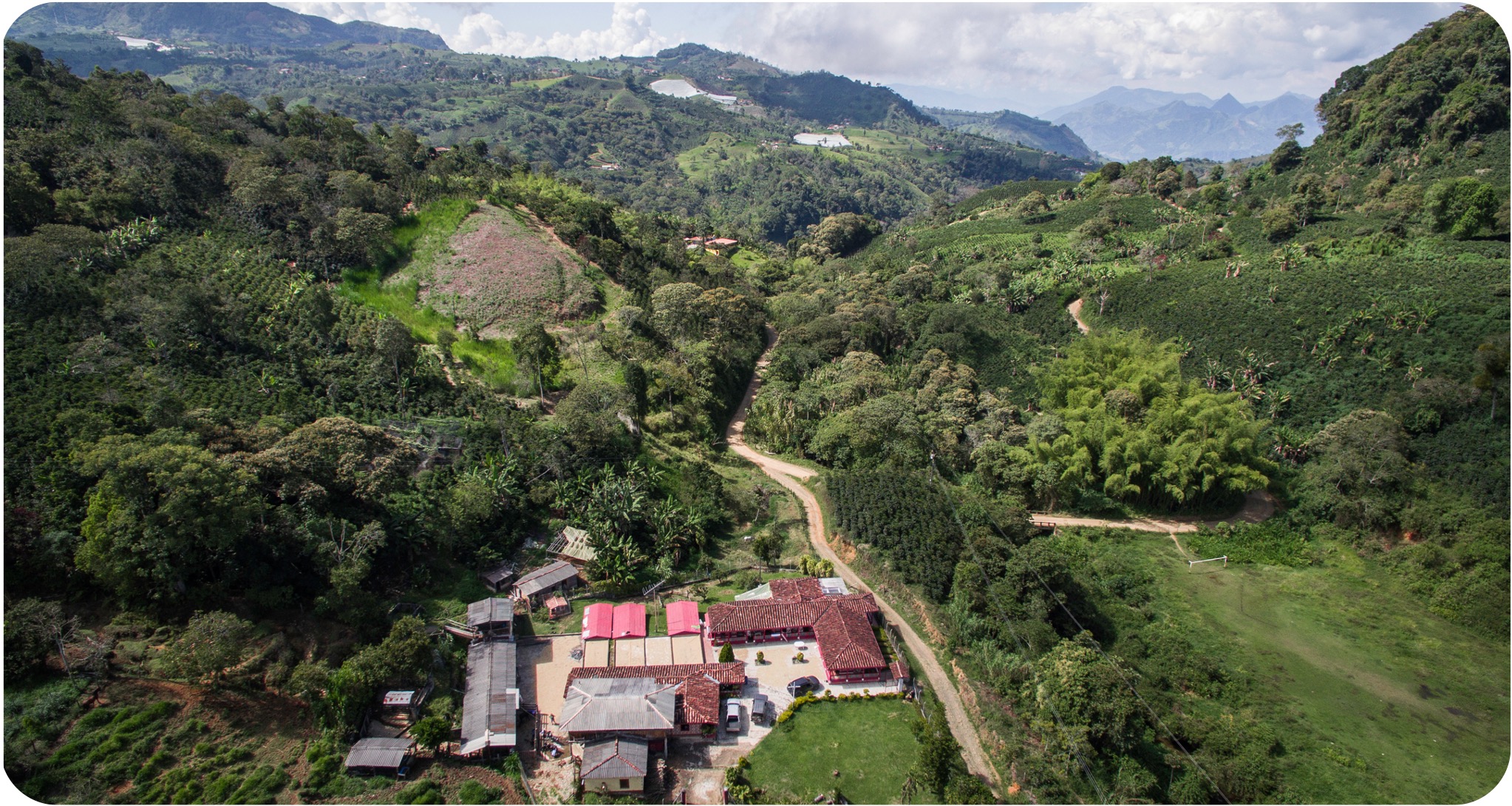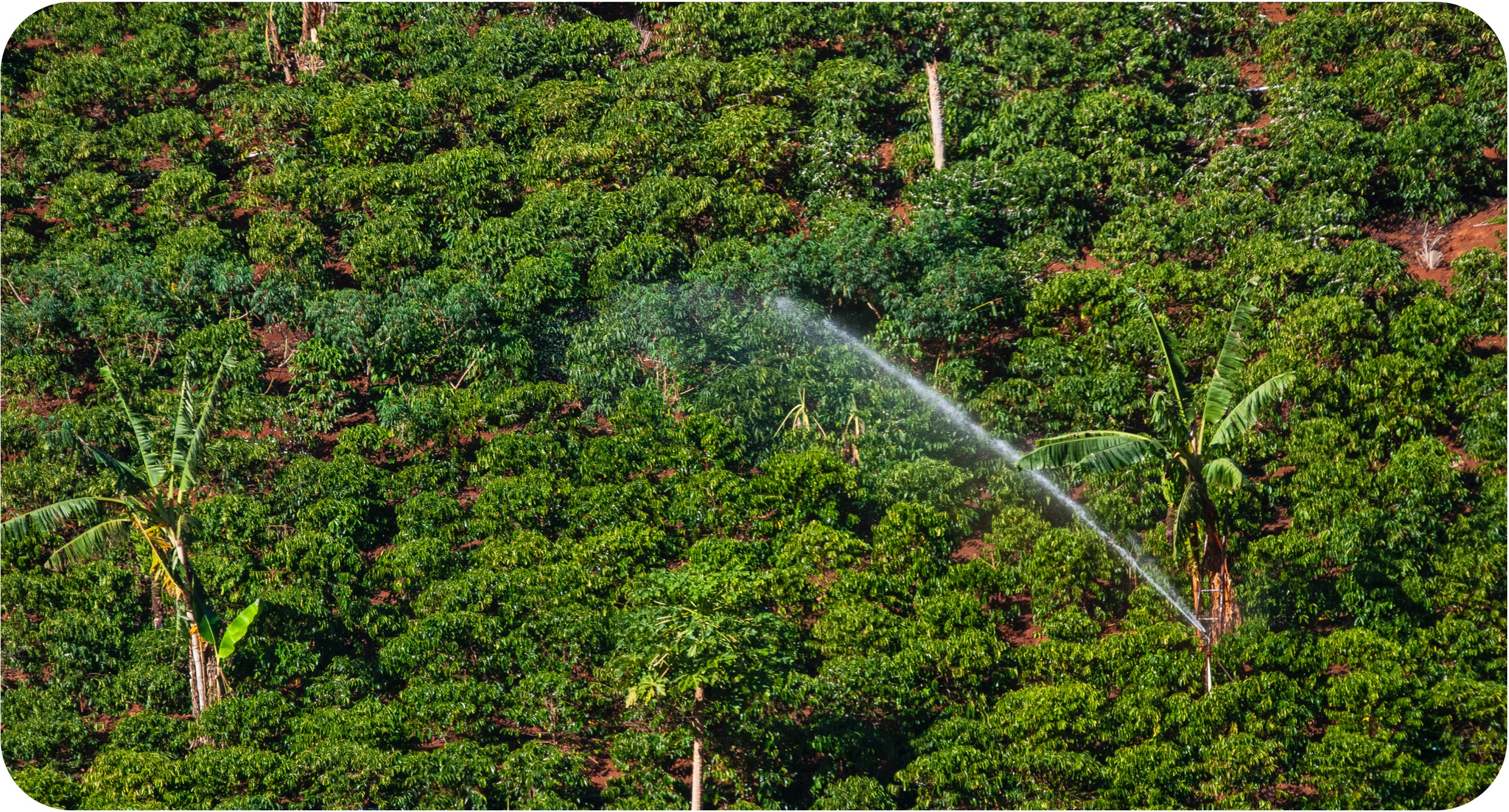blog
Sustainability Passporting for Climate Threatened Arabica – A case study
The future of coffee
Analysts forecast that by 2050, climate change will cause some of the most suitable coffee producing origins will decrease in output by up to 50%. With over 2 billion cups consumed daily, we at Trade in Space partnered with colleagues at Environment Systems to investigate how climate change might affect the supply of coffee – where are the highest risk origins, and what might future impact look like on the ground? Data from satellites can help us find the answers.
The project, sponsored by STFC Climate Services, investigated what place Remote Sensing and data can be used to predict how coffee growing regions might change over the next 80 years as global weather is disrupted due to climate change. Our objective was to create a user-friendly informative interface on our supply chain management tool, Sustainimaps, to inform users of areas which are likely to see increasing disruption. We allocated a risk level to the farms we monitor, indicating their vulnerability to disruption from climate change. We focussed our pilot study over Antioquia in Colombia.

Coffee farm in the mountains of Antioquia
The project comprised of two key development stages. Firstly, Environment Systems Ltd produced 9 data layers over a coffee producing region in Antioquia. The data layers covered time periods –present day 2020-2040, near future, 2040-2060, and longer term 2060-2080, as well as low, med and high emissions scenarios for each time period, published by the IPCC who monitor climate change on behalf of the United Nations. The data classified land as suitable, limited suitability and unsuitable for arabica production. The project consisted of modelled temperature and rainfall analysis across Antioquia in Colombia, following varied climate emissions scenarios with other known driving factors of land suitability for farming arabica coffee, including slope, altitude and soil conditions. Next step was to model the overall likelihood of resilience of the land to future climate change, to assess the threat to current arabica growing regions and the potential required migration of these regions to sustain the level of output currently seen.

Irrigation of coffee farms
Following the completion of this analysis, Trade in Space imported the data into Sustainimaps, and created a vulnerability risk scoring, and a time series heat-map which is viewed as an additional layer on the platform. Each coffee farm monitored within the region was assigned a risk score from “Very High Resilience” to “Low Resilience” depending on the projected environmental impact of climate change. We then built and integrated the new “climate suitability” service, into our existing proprietary supply-chain management tool, Sustainimaps; which then tokenises sustainability certificates onto a blockchain. The new data layer is currently available to be viewed by Sustainimaps users – please contact us if you would like to see how it looks, or request a new area for us to analyse.
The study highlights the impact disrupted weather is going to have on the global supply of coffee, and on traditional coffee farming regions. We discovered many of the farms currently monitored in this study are in areas which are currently considered to be of limited suitability, and in the near future , we discovered that many of these farms are likely to become unsuitable and unproductive. As a result, we plan to further develop this investigation to investigate mitigation strategies which might improve the longevity of these regions in partnership with organisations working on production optimisation.
The Trade in Space team continue to invest in analysis and research, utilising remote sensing and distributed ledger technologies to support our food supply chain, and enable frictionless trade. We welcome enquiries, if you’d like to see a demo of the analysis and outcomes of this study, or any of the other products offered by Trade in Space, please reach out to the team at hello@tradeinspace.com










